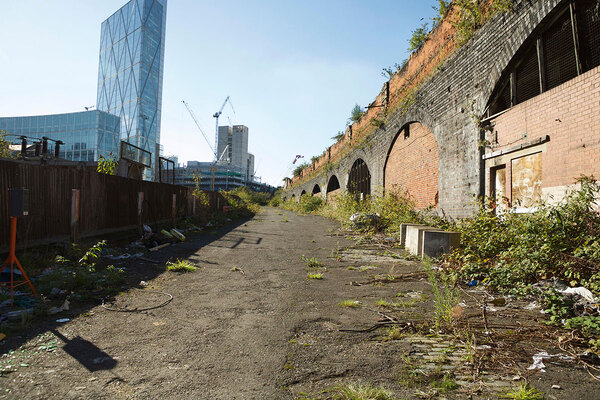You are viewing 1 of your 1 free articles
Don’t bury poor performance, you will only get found out
Housing associations must step up their levels of transparency if they are to avoid the watchful gaze of regulators, warns Eamon McGoldrick
The Social Housing White Paper will probably suffer another publication delay as the latest housing minister, Christopher Pincher, gets to grips with his new brief.
In the meantime, the Regulator of Social Housing (RSH) and the Housing Ombudsman have been sending out some very clear and joined-up messages which landlords need to heed. So, what are those messages?
From the regulator, we will see more robust intervention on consumer standards across the whole sector. There will be a set of key performance indicators strongly focused on quality of home, safety, complaints handling and resident engagement.
The number of regulatory notices issued by the RSH has more than doubled in the past 12 months, and local authority landlords in particular have been warned that if they have any concerns about their performance on consumer standards they must self-refer to the regulator – which is happening more frequently.
Increasingly, the RSH is acting on information from residents and whistleblowers, including former members of staff.
The Housing Ombudsman, Richard Blakeway, has made it clear that his organisation will have a very different role going forward.
On the softer side we can expect reduced investigation times, publication of data currently held by the ombudsman, best practice publications, and a new complaints handling code. All of these measures will help landlords improve their performance on complaints, which has to be welcome.
On the tougher side we will see new ‘complaints handling failure notices’ being issued by the ombudsman. Mr Blakeway says that around 90% of landlords are failing to respond to requests from his staff on time.
That is shocking and shows a total disrespect for the ombudsman service, which is not going to be tolerated anymore.
There has been a significant increase in the percentage of outcomes that involve a finding of maladministration. Landlords who attract a negative outcome from the ombudsman will be named (and shamed).
We can also expect a lot more communication between the RSH and Housing Ombudsman. This is already happening on a formal and informal basis, which is illustrated by a statement from Mr Blakeway that if a landlord gets a regulatory notice, his staff will follow up and check that landlord’s performance on complaints handling.
So, what do landlords need to do in this new world?
First, heed the messages above and start now to make changes in the way you collect and present data, and report and engage with residents. You also need to prepare for much more robust scrutiny by external parties.
“The regulator has said publicly that in too many annual reports ‘everything is rosy in the garden’. That’s a clear message, and if you look too good it may attract the regulator’s attention”
Second, can you stand by those glowing performance figures that you see in some annual reports? I have seen published performance figures like 100% satisfaction with repairs, 100% staff satisfaction and 98% of repairs completed right first time. I, as a housing professional of 43 years, don’t believe those figures, so why should any resident?
The regulator has said publicly that in too many annual reports “everything is rosy in the garden”. That’s a clear message, and if you look too good it may attract the regulator’s attention.
Third, work even more closely with your residents on policies, procedures and outcomes. Is your performance data scrutinised by residents? Usually landlords publish the annual report and wait for the sceptics to criticise the glowing performance figures.
“In future, the regulator and ombudsman will be expecting landlords to demonstrate a lot more transparency and accountability”
Have you thought about asking a panel of residents to sign off the annual report before it is published? That will probably result in a more grounded and honest publication and stand you in good stead when the regulator comes knocking.
In future, the regulator and ombudsman will be expecting landlords to demonstrate a lot more transparency and accountability.
You will need to have strong data to support whatever you are publishing. How are you going to explain yourself if you win a housing award based on a 100% repairs satisfaction and three months later you get a regulatory notice for compliance failure under the Home Standard?
Finally, don’t think you can bury poor performance. Residents, the media, whistleblowers and politicians will all know where to go if they want to raise concerns and there will be fewer hiding places.
Eamon McGoldrick, managing director, National Federation of ALMOs











